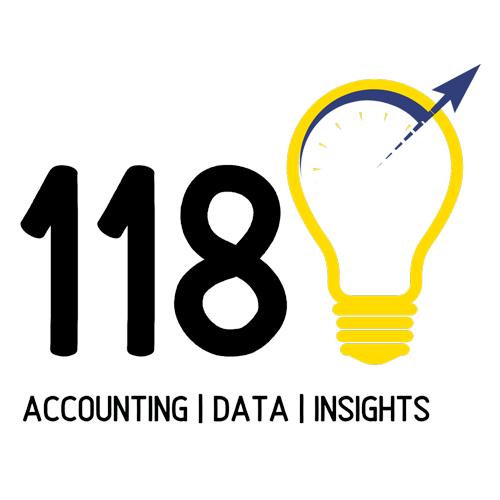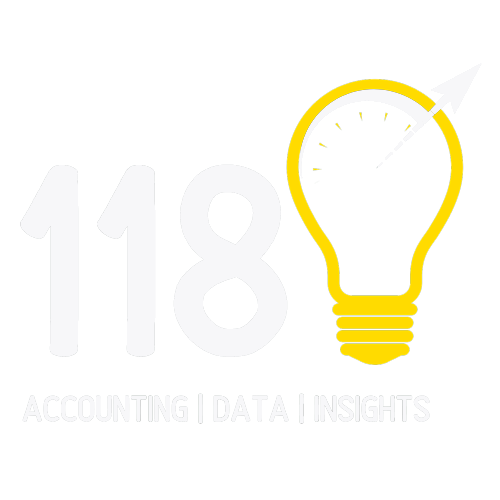Forming A Routine
Getting a grip on your numbers can seem like a daunting task – especially if you are carrying some sort of an aversion from your school or varsity days. In my last two posts I discussed why it is so important for a small business owner to stay on top of their business finances. I pointed out the difference between the value your accountant adds vs. the value you can derive from growing your financial literacy, whilst growing your business (https://118accounting.co.za/not-a-numbers-person-i-hear-you-say/) . I also covered the importance of getting your accounting off spreadsheets and into a cloud-based accounting programme (https://118accounting.co.za/ref-error-get-off-that-spreadsheet/). This week I will go through the process of forming a GOOD accounting routine, and what tools to consider using to automate and make the accounting process easier.
FORMING A ROUTINE – THE ACCOUNTING KIND
Humans are creatures of habit – we do so many things in our daily lives that are routine that we don’t even realise it. These routines and habits are done easily and don’t require much brain processing power because we do it all the time. They have become second nature. For a small business owner, you want your accounting process to be the same. You want to be spending your time and energy on building your business and coming up with the next best thing. There is only one problem:
BAD HABITS ARE EASY TO FORM, GOOD ONES AREN’T
The only way to build a good habit is to formulate a process and repeatedly work on refining and executing it. The monthly accounting process isn’t a difficult task for an accountant to achieve, but as we have discussed in previous posts, not all small business owners are accountants. Not all businesses are the same size or follow the same patterns, but the accounting routine will be. Here are a few things that you can do to formulate an accounting routine, and the tools that will make it easier to achieve:
DAILY WEEKLY AND MONTHLY
There are four main categories to the accounting process. Customers, suppliers (vendors), bank reconciliations and non-cash entries. Depending on the nature of your business and the volume of transactions – some of the tasks listed below can change from daily to weekly or even monthly.
- Customers
You deal with your customers daily. You want to ideally invoice them as soon as possible. This will ensure a healthy inflow of cash, so creating an invoice from a spreadsheet template and then capturing batches of invoices into your accounting system is not ideal. Consider switching to cloud accounting software that enable you to immediately invoice from anywhere and anytime.
- Suppliers
The same goes with your suppliers – you deal with them daily and want to ensure that you know what your commitments are as soon as possible. You don’t however want to be capturing invoices for hours on end. You also don’t want to run the risk of overpaying a supplier or paying for the same invoice twice. Consider implementing a tool with optical character recognition (OCR) software that integrates with your accounting software. This will save you time by prepopulating your bills (supplier invoices) as well as automatically posting them to your accounting system.
- Bank reconciliations
This is the process that tidies up your accounting process. This is where you see who has paid you, and how much cash you have. It allows you to plan for the month ahead, manage your business cashflow and follow up on outstanding debtors. Getting the bank recon process right is not difficult, but it does require the most discipline. You want to ensure that you do this daily. Consider cloud accounting software that automatically downloads your bank statement daily, and then uses artificial intelligence to suggest where the transaction should go.
- Non-cash entries
These are the transactions that are normally performed or set up by your accountant and done on a monthly basis. Things like depreciation or provisions for expenses. Consider accounting software that makes setting up and processing these transactions simple. Software that includes recurring journals and an asset register, if your business has them.
All the above processes can become routine for small business owners by having the discipline of consistently repeating them. It will not take long for this to become like a second nature activity – and it will also not take long to execute, if you use the right tools that are available.
Next week I will discuss what you need to consider when choosing what accounting system you should use, and the general steps to follow when setting it up. Give 118Accounting a call if you are looking for solutions to speed up and automate your accounting process and make accounting easy!

